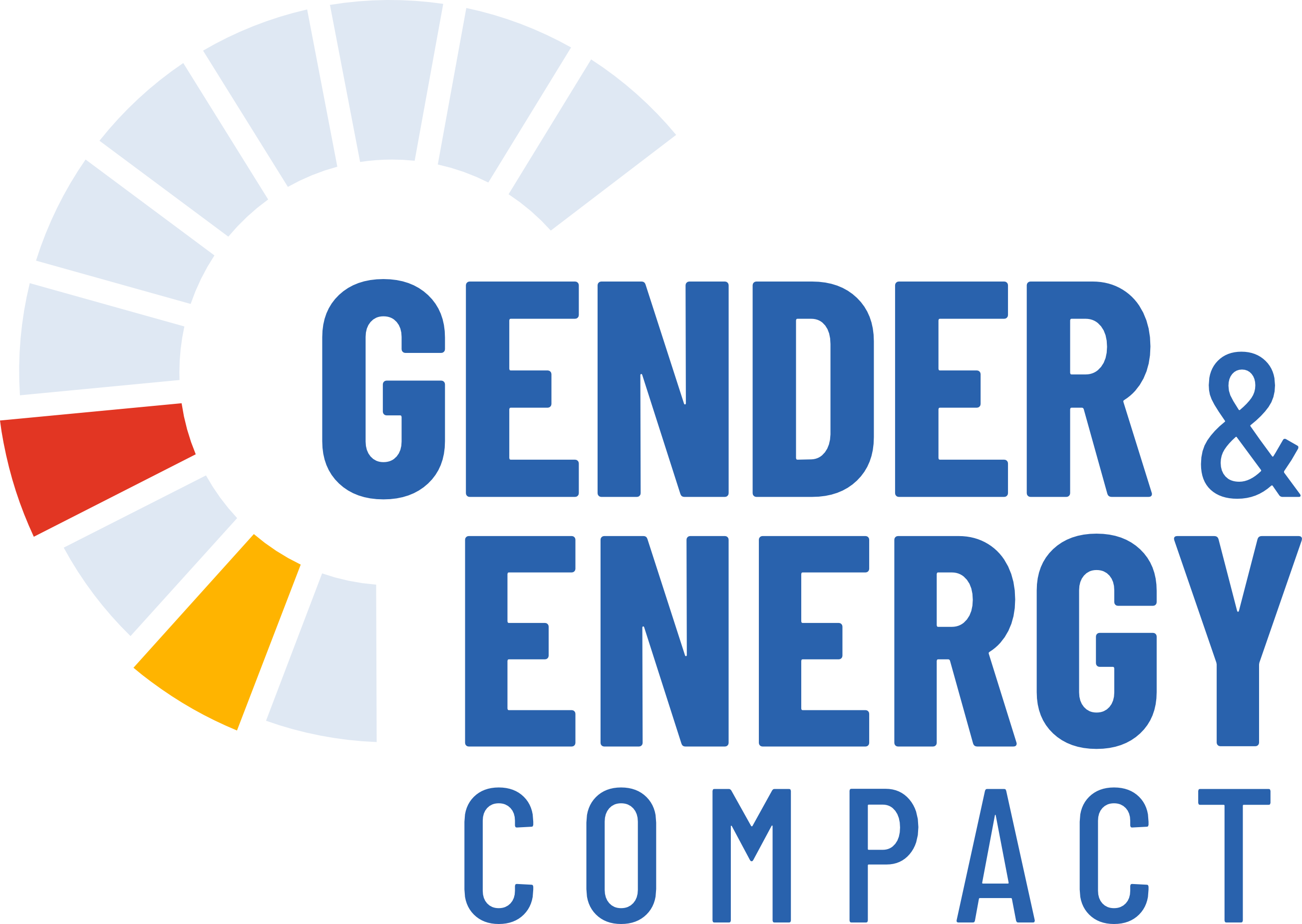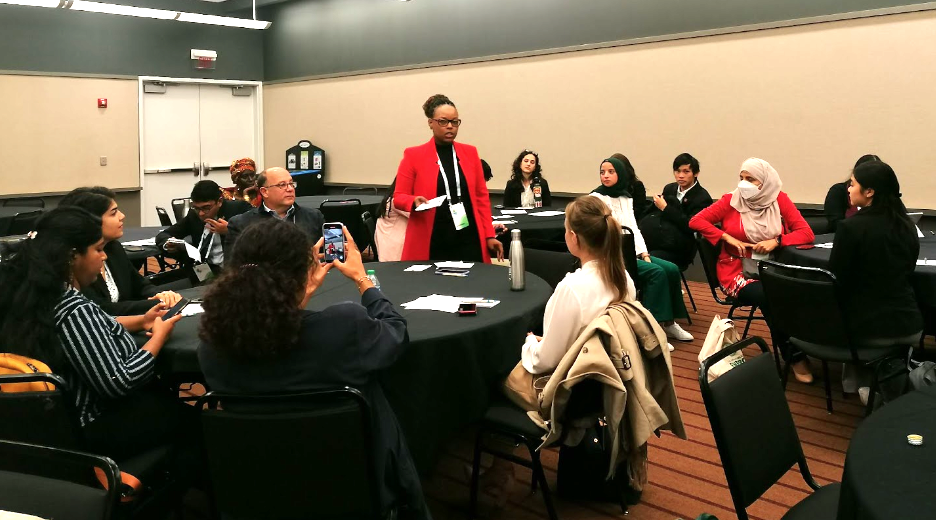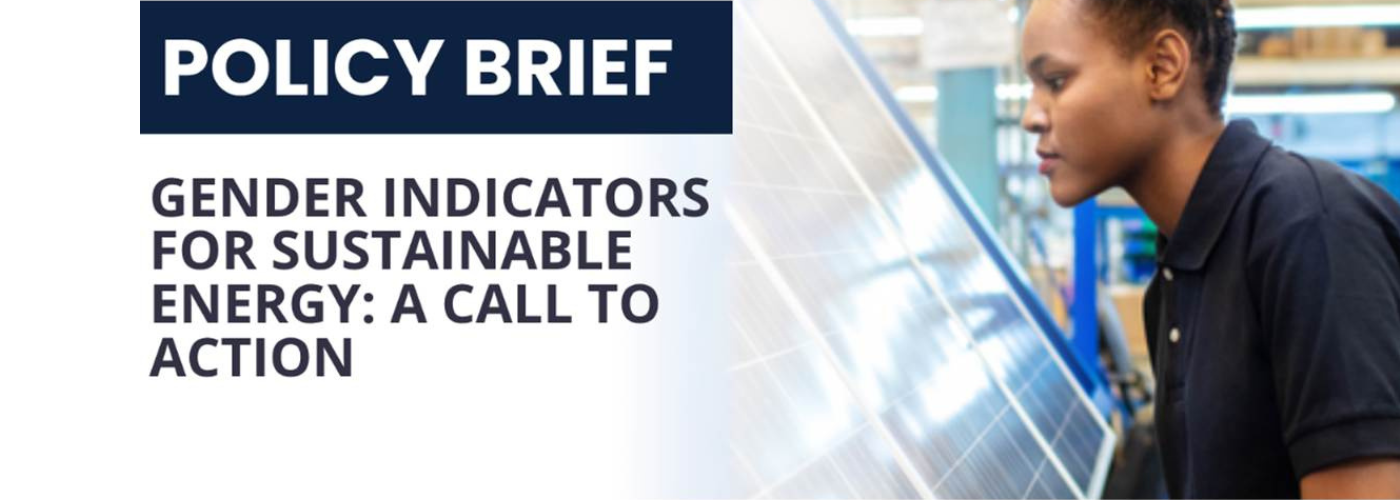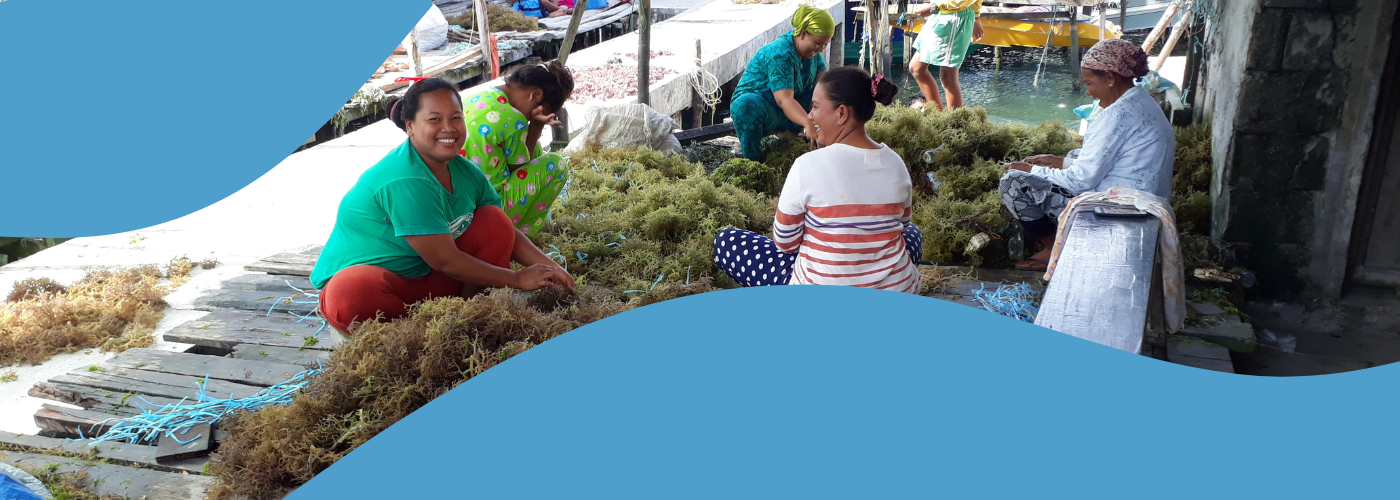Best side event at this conference! I felt like we were really given a platform to voice our thoughts and that our input was highly valued
Bianca Garvin -Global Youth Ambassador for GAUC: Global Alliance of Universities on Climate
Whilst the proportion of women in renewable energy jobs has increased in the last decade by 10 percentage points up to 32% in 2018 women still face many challenges that hinder them to equally lead, contribute to and benefit from the energy transition. These include not only limited access to finance and full access to the labor market but also lack of representation and fora, as well as gender based discrimination. Globally we are far from achieving gender parity in the energy field as only 6% of ministerial positions on national energy projects and programmes are held by women. Gender equality is not only a human right, but also makes economic sense. Several studies demonstrate a correlation between high levels of gender diversity in corporate boards, senior roles and management positions on the one side, and a company’s level of innovation, financial performance and profitability on the other side. Moreover, companies that improved gender diversity on their boards were more likely to reduce energy consumption, water use and greenhouse gas emissions (60, 46 and 39 per cent, respectively), and to cover their energy needs from renewable energy sources than those who did not. (1)
To achieve SDG7 it is essential to empower the young generation. However, youth, similar to women, are usually underrepresented in the higher-ranks, notably in the (political) decision-making process, and therefore have unequal opportunities to shape and benefit transformations such as the energy transition. Nevertheless, the sustainable energy transition is a field in which young people show great interest as well as potential and provide promising solutions. However, 1.8 billion youth around the world still face limited access to educational opportunities, and lack funding and mentoring opportunities for their projects and the development of their career paths. Youth in emerging and developing economies are particularly disadvantaged. In particular young women face double discrimination, and multiple forms if they are of color or belong to a vulnerable group. Including young women in the energy transition, educating girls in STEM, changing gender stereotypes during childhood, and resolving women’s barriers to equal leadership is key in increasing gender equality and achieving SDG7.
In order to address this issue, the Gender and Energy Compact Coalition, in partnership with the Equality in Energy Transitions Initiative, co-hosted an interactive workshop titled “Rethinking the Energy Transition: Gender and Equality” at this year’s Creating the Energy Future Forum (CEFF), part of the Global Clean Energy Action Forum at the 13th Clean Energy Ministerial held in September 2022 in Pittsburgh, USA.
The interactive workshop aimed to reflect jointly with youth on the inclusivity of gender-energy initiatives, such as the ‘Gender and Energy Compact’ and the ‘Equal by 30 Campaign’, and provide valuable feedback and ideas to promote a just, equal and inclusive energy transition. Participants discussed in a lively exchange with senior experts how gender-energy initiatives can support and contribute to enhancing youth’s engagement, involvement, and leadership in a just energy transition.
The event started with welcoming remarks by Tareq Emtairah, Director of the Energy and Decarbonisation Department of UNIDO, who stressed the necessity of including young women and men and their valuable input into the decision making sphere at a very early age to design and develop policy tools for the energy transition that are just, inclusive and thus more efficient. Tareq concluded with the powerful words, “whatever outcome you have I take it personally, and I will try to bring it into our organization”.
Azadeh Badieijaryani, Head Secretary of the Equality Initiative, presented the ‘Equal by 30 Campaign’ and highlighted the importance of diverse youth engagement, “[…] Personally I am very lucky that I could have joined the Equality Initiative and have my say in the energy sector, but I realize that this is not the opportunity that a lot of people get. So we are here today to gather your recommendations, to hear your voices and get inspired by you’’.
On behalf of the Gender and Energy Compact Coalition Sheila Oparaocha, Director of the ENERGIA – International Network on Gender and Sustainable Energy, introduced the Compact’s main targets and gave an empowering statement to spark off the roundtable discussions, “Find your space of contribution and action and claim them in a very powerful way, not just for yourself but also for others that are not necessarily with you in the room. This is not just done by standing at platforms but foremost by conversations and workshops like this. We are really excited to present you the Gender and Energy Compact and get your input”.
The presentation of the initiatives was followed by interactive roundtable discussions. The overarching topics that emerged amongst participants and gender-energy experts were access to finance and funding, dimensions and concepts of inequalities, as well as institutionalized inclusivity and representation.
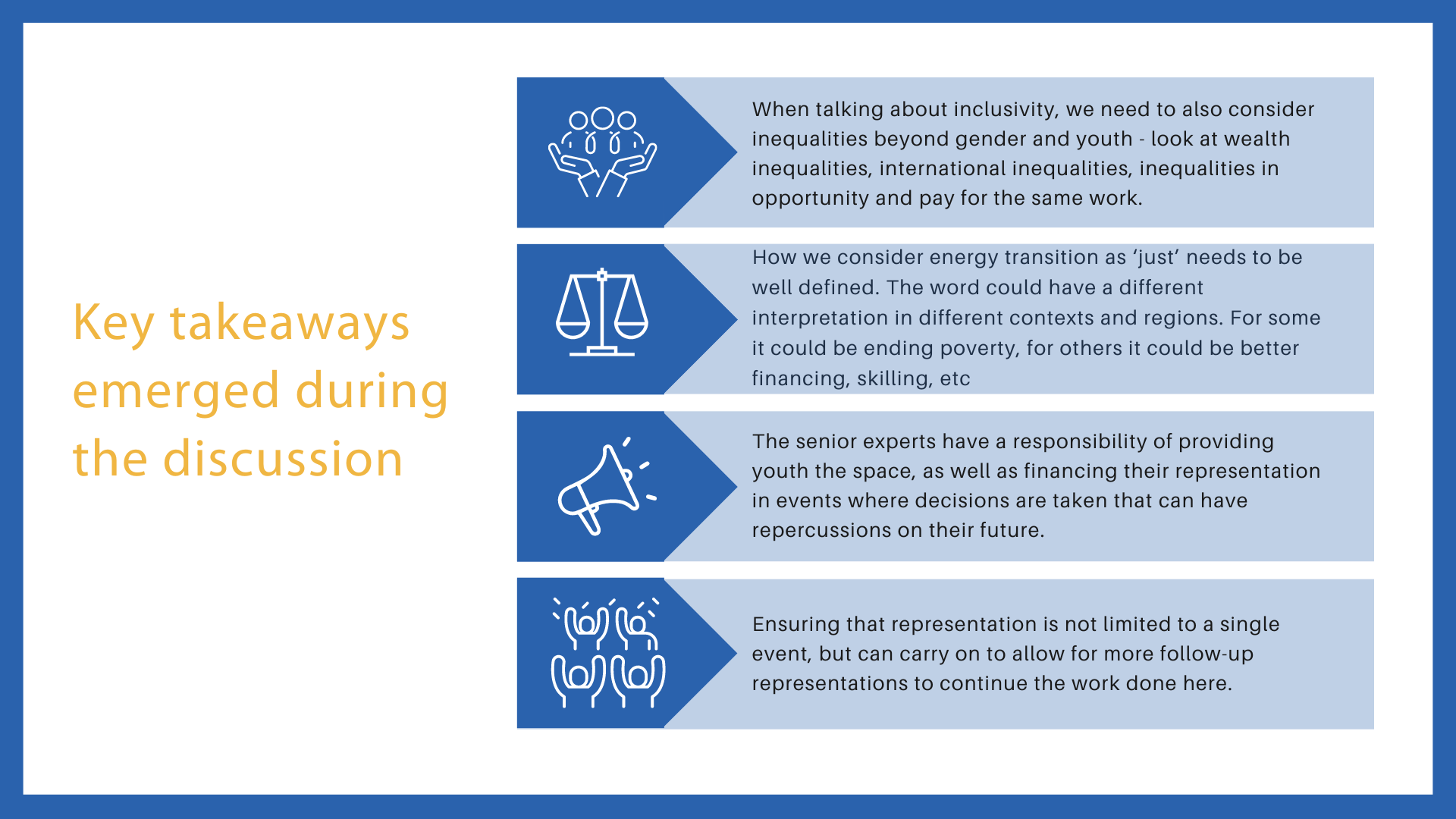
Wrapping up the inspiring discussion, Serena Mendizabal, Cayuga Panamanian Wolf clan woman from the Six Nations of the Grand River Territory (Candidate of MSc Geography and Environment at Western University, and member of Student Energy), emphasized the power of community-decision making. “When we are able to be together and create spaces, climate anxiety vanishes, as we co-create a vision for our future that focuses on caring for the land, caring for each other, caring for all”. Indeed, one of the strategic roles of renewable energy in climate adaptation strategies is to strengthen the self-resilience and adaptive capacity of communities through off-grid development of sustainable energy solutions and thus decreasing the vulnerability of people to climate change impacts, confirms a recent IRENA publication. Implementing off-grid renewable energy solutions entails community-based governance of a decentralized energy infrastructure. Given the strong role and responsibility of youth and women in communities, it is crucial to include them into the governance structure.
“Youth voices are at most times never taken seriously by people in positions of power. Some of the youth representation feels as a token, as if the hosts are doing us a favor by inviting us to these [conferences], rather than hearing us out and responding to our concerns”, spoken in frustration by Lanvin Concessao, a young professional working at WRI India, prior to the “Rethinking a gender-just energy transition with youth” workshop.
However, when Serena ended her closing remarks with an empowering call to action, one could witness the feeling of frustration caused by insignificant youth participation at other events transforming into a vigorous zest of action and motivation. “My call to action is to make sure that youth, women, transgender, and non-binary people are at the forefront of these decision-making processes. We hear a lot about the concept of ‘just transition’, but what does that actually mean and who are we leaving behind if we are going without having these kinds of conversations?”. Serena resumed one of the core messages that was vibrantly discussed at the roundtables, namely that it is essential to have a comprehensive and developed definition of the word ‘just’, considering that the word could have different interpretations in different contexts and regions. Serena concluded that “we need an intersectional approach, otherwise we keep replicating the same injustice that we face with our current energy system”.
“The side event was one of my favorites. It worked very well with the intergenerational conversations between youth and senior members of the energy community.” – Yasemine Yavari, Member of Danish Youth Council
Representatives of the Gender and Energy Compact Coalition and the Equality in Energy Transitions Initiative did not only highly value the input that was given by young professionals at the discussion tables, but are serious about implementing it in their respective initiatives, and inspiring other organizations to include meaningful youth participation. In this light, the way forward was clear. Out of the participants, a task group has been formed with the purpose of further developing the ideas and proposals that have been put together in Pittsburgh. Jointly with the Gender and Energy Compact Team, the task group of young professionals are concurrently in the phase of incorporating the proposals into a “Guidebook for Meaningful Youth Engagement in Industrial Development” developed by UNIDO and also integrating suggestions into the Gender and Energy Compact to make it more youth-responsive. The proposed input includes not only guidelines of purposeful youth participation in the design of events and conferences, but also emphasizes the inclusion of youth into process design and project implementation with a specific focus on gender. The guidebook is expected to be published by the end of the year 2022, and represents a first step along the way of a fruitful and insightful collaboration.
(1) McKinsey (2020): Diversity wins: how inclusion matters; https://womenasleversofchange.com; https://www.sciencedirect.com/science/article/pii/S0929119920301097
